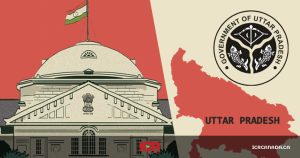Uttar Pradesh Anti-Conversion Law Nearly 1,700 Arrested in 4 Years

Over the past four years, the Uttar Pradesh Prohibition of Unlawful Conversion of Religion Act has led to the arrest of 1,682 individuals and the registration of 835 cases in Uttar Pradesh, a state in North India. A significant proportion of those arrested under this law have been Christians, including pastors, raising concerns about the implications for religious freedom and minority rights in the region.
The Law and Its Enforcement
The Uttar Pradesh government, under the leadership of the Hindu nationalist Bharatiya Janata Party (BJP) and Chief Minister Yogi Adityanath, has taken an aggressive stance on religious conversions since 2020. The Uttar Pradesh Prohibition of Unlawful Conversion of Religion Act, considered the most stringent of its kind in India, was introduced to curb what the government views as illegal and coercive religious conversions. This law stands out for its severity compared to similar legislation in nine other Indian states.
Chief Minister Yogi Adityanath, known for his hardline approach, has been instrumental in driving this crackdown. His government’s enforcement of the law has resulted in widespread arrests, primarily targeting the Christian community. Critics argue that the law is being used as a tool to suppress religious minorities, while the government maintains that it is necessary to prevent conversions carried out through inducement, coercion, or fraud.
Legal Outcomes and Criticism
Despite the large number of arrests and cases filed, no one has been convicted under the Uttar Pradesh Prohibition of Unlawful Conversion of Religion Act. A prominent law firm in North India, which has chosen to remain anonymous due to security concerns, reports that the lack of convictions stems from a lack of concrete evidence supporting the charges of unlawful conversions. Legal experts and human rights activists have expressed concerns that many of the arrests have been made based on flimsy or unsubstantiated allegations.
Sahu Johar, a legal analyst, highlighted the absence of convictions as indicative of the questionable nature of the charges. He argued that if there had been any legitimate convictions, the pro-government media would have widely publicized them to reinforce the narrative of illegal conversions. Johar’s comments underscore the growing skepticism about the law’s implementation and its impact on religious freedom in the state.
In response to these concerns, government officials have stated that actions are being taken based on evidence and that those who offer inducements or use illegal means to convert others will face consequences under the law. However, this assurance has done little to quell the criticism from those who view the law as a means of targeting and intimidating religious minorities.
High-Profile Cases and Recent Amendments
One of the most high-profile cases under the anti-conversion law involved the arrest of eight individuals associated with the Sam Higginbottom University of Agriculture, Technology and Science in Prayagraj. Among those arrested were the vice-chancellor and two pro-vice-chancellors of the government-aided university. This case, like many others, has drawn significant attention and raised questions about the motivations behind the arrests.
 In July, the Uttar Pradesh government introduced an amendment to the Uttar Pradesh Prohibition of Unlawful Conversion of Religion Act, making all offenses under this law punishable. This amendment has heightened concerns about the potential for further misuse of the law and the possibility of increased persecution of religious minorities.
In July, the Uttar Pradesh government introduced an amendment to the Uttar Pradesh Prohibition of Unlawful Conversion of Religion Act, making all offenses under this law punishable. This amendment has heightened concerns about the potential for further misuse of the law and the possibility of increased persecution of religious minorities.
The ongoing enforcement of the Uttar Pradesh Prohibition of Unlawful Conversion of Religion Act (PDF) has sparked a contentious debate about the balance between preventing coercive conversions and protecting religious freedom. While the government defends the law as a necessary measure, the absence of convictions and the nature of many arrests suggest that it may be more of a political tool than a genuine effort to uphold justice. As the law continues to be enforced, its impact on religious freedom and minority rights in Uttar Pradesh remains a critical issue.
